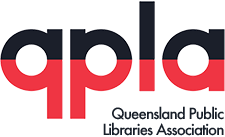I’m not going to lie – I was shocked to learn I’d won the bursary to the QPLA conference 2022. Having only entered the public library arena 2 years ago after being in private business, social enterprise, and charity, this was an amazing opportunity for me to deep dive into the world of public libraries. There were quite a few highlights that I would love to share with you.
Lightning Talks
A big highlight for me was the lightning talks. I loved that we could fit so many different topics into such a short amount of time. Each presenter brought with them a little bit of their library service, sparked different ideas, and gave us a brief insight into their unique community. I love that we were able to give a voice to so many in our network – I was inspired by all the different topics and hearing what each service is working on.
Digital posters
Another key highlight was winning the QPLA Digital poster award for the Noosa Seed Library! This is a project close to my heart and I was beyond proud to share it. I loved seeing the other digital poster entries. This was another great way for us to see what other library services are up to. I was inspired by the generosity in everyone being willing to share about how their projects went – the good, the bad and the ugly. Working together and sharing this kind of information helps us learn from each other and build a stronger and more resilient network.
Drugs
A little quote that’s been on repeat in my mind (sorry, I didn’t make a note of who said it)
“The gateway drug to reading is reading.”
It doesn’t matter if kids start by reading Archie comics, or something that parents might think is irrelevant or not educational enough. Let young people read whatever they’re keen to read and over time they will grow into reading more refined literature, but we’ve all got to start somewhere!
Facts
Fun fact: Public libraries have more members than AFL Australia wide!
Sobering fact: Queensland communities are behind the nation’s digital literacy scores.
I don’t know about you, but those two facts send me on a bit of an emotional roller coaster. And that’s pretty much how the whole conference was. It was a jam-packed couple of days full of real-talk, banned books, inclusivity, programs that connect with our communities, sustainability, culture. No one shied away from having the tough or awkward conversations – I think because we were amongst friends, we had the space to stumble with things we weren’t sure about. To discuss things where we don’t know the answer or where to go next. Topics like decolonization, censorship, creating a culturally safe library, an inclusive library that uses genuinely inclusive language.
More questions than answers
The most impactful question hit me on day two when Dr Kirsten Thorpe said
“Your library is on stolen land. What are you going to do about that?”
Yes, that book might be ‘of its time’, but how can we enable a right of reply? How do our libraries support cultural continuity and indigenous ways of knowing, being and doing? Do we have warnings on certain books? Do we have updated metadata using appropriate terminology? Are we freely encouraging circulation of settler narratives? What about reclassifying some of our collection?
It can be uncomfortable for some to navigate this space around harm and censorship, and we’ll likely have to start with symbolic gestures, but over time all these actions build a certain reality that start to manifest as actionable tasks. We can’t change history, but we must start somewhere.
The more you know, the more you know. Y’know?
Another sobering fact came on Friday afternoon.
41% of young people say they have trouble keeping up with technology.
While this makes me feel a little better about not keeping up with reels, Snapchat and TikTok, it’s still hard hitting. People are struggling out there. The digital divide is real, and what we do matters. Everything I heard during the conference hammered home for me how important we are in our community. Each conversation we have, each person we help, each item we make available and how we define it. It all makes a difference.
We make a difference.
There were a few common themes over the 2.5 days: building resilience, equity, and inclusion. Three values that I know we all hold close and do our best to represent every day in our respective library services. QPLA held the space for fascinating conversations about topics close to our hearts that can only make us better – better in all levels of community, and certainly more well-rounded and informed humans. I’m grateful for the opportunity to have been a part of the conversation and I’m going to do my best to bring my learnings back into our library service here in Noosa.
